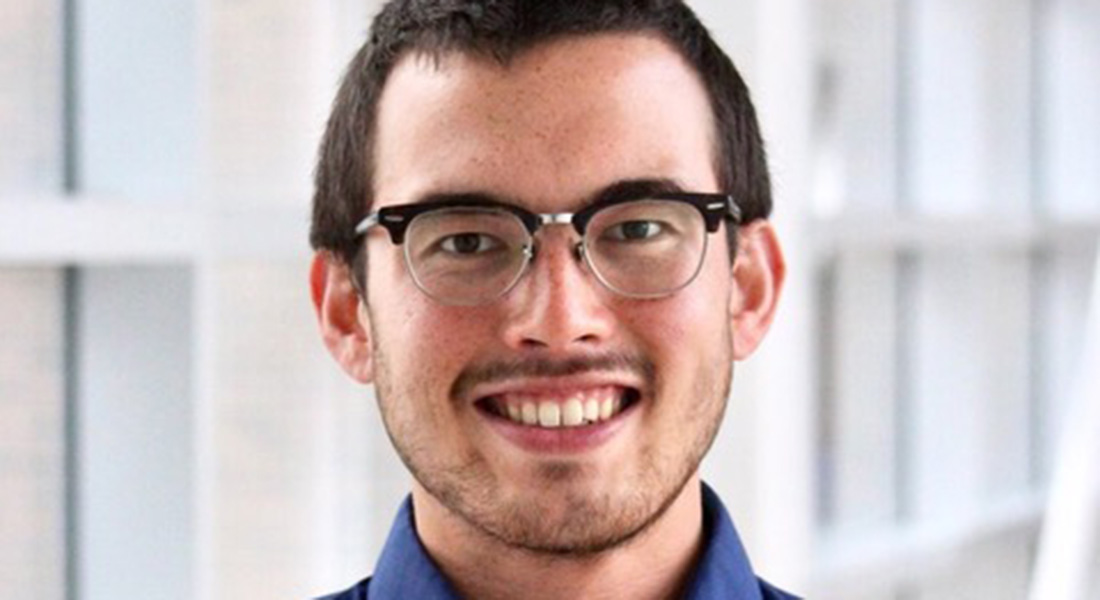Isaac Weldon: How societal systems shape global health outcomes
Meet Isaac Weldon, an Assistant Professor at the Centre for Advanced Studies in Bioscience Innovation Law, Faculty of Law, University of Copenhagen. In this spotlight, Isaac presents his research on how our political, legal, economic, and social systems shape global health outcomes, especially how antimicrobial resistance, pandemics, and climate change, are symptoms of deeper issues in how we organize society.

Tell us about your research
I’m a political scientist, so my research focuses on how our political, legal, economic, and social systems shape global health outcomes. I’m especially curious about how some of our biggest challenges, like antimicrobial resistance (AMR), pandemics, and climate change, are symptoms of deeper issues in how we organize society—things like inequality, market failures, and gaps in governance. I want to explore how we can rethink these systems to create more sustainable and fair health outcomes for everyone. AMR, for example, isn’t just a medical issue; it’s connected to everything from agriculture and trade to labor practices and public health, which makes it a perfect case study for understanding the bigger picture.
Why is this research important?
It’s important to see health as a political outcome because it helps us get to the root causes of health inequalities. If we only deal with the symptoms without looking at the bigger issues— like the dynamics of our global economic and political systems—we’re not going to see real, lasting improvements. AMR shows this perfectly; it’s a problem that comes from how we use antibiotics in farming, how the pharmaceutical industry works, and how we regulate (or don’t regulate) these practices worldwide. By connecting these dots, I’m hoping to encourage the kind of systemic changes that can improve health outcomes across the board.
What excites you about your work?
I love that my work has the potential to make a real difference, both locally and globally. I’m passionate about finding ways to address health issues at their roots, whether that’s through policy changes, community projects, or even just challenging the way people think about these problems. Seeing how even small changes in policy or practice can have a big impact on people’s lives is super rewarding. Plus, I get to connect with so many interesting people—researchers, students, policymakers, and community leaders—and that’s where the most creative and effective solutions come from.
At the end of the day, I believe it’s all about people, and that’s what keeps me going.
What achievements do you hope to see within your research field 10 years from now?
In 10 years, I’d love to see us making real progress in tackling the structural issues that lead to poor health outcomes, like unequal access to medicines or the over-reliance on market mechanisms that don’t always serve the public good. I hope global health organizations work more closely with those in climate, trade, and development to create a more integrated approach to health, wellbeing and personal fulfillment worldwide. Personally, I want to keep bridging the gaps between these areas, working on projects that push for sustainable, equitable health policies, and maybe even help shape some of those policies myself.
What advice do you have for junior researchers in global health?
Be curious. And don’t be afraid to look at problems from different angles. Some of the best insights come when you step outside your usual bubble—global health isn’t just about medicine; it’s about economics, politics, sociology, and so much more. Also, don’t hesitate to ask tough questions, even if they make you or other people uncomfortable. That’s often where the most impactful research starts. And reach out to people—networking can feel awkward at first, but you’ll be surprised at how nice people are, how willing they are to support, and much you can learn by having a chat with someone who’s been around the field for a while. Most importantly, take care of yourself. It’s easy to get caught up in the demands of this work, but we need passionate, rested people to tackle these big challenges.
What is your favourite source of global health inspiration and knowledge?
Honestly, I love a good meme. It’s inspiring to see how creativity, humor, and sharp insights can communicate complex ideas in such a simple, effective way. Memes can be a powerful tool for raising awareness, sparking conversations, and even challenging norms, all while being super accessible. Beyond that, I’m also a big fan of the Wellcome Trust’s work, especially on AMR, because of their holistic approach. On a day-to-day basis, I rely on a mix of journals, books, podcasts, and social media. There’s an amazing community of researchers, advocates, and students sharing their thoughts, and seeing how the next generation is engaging with these challenges keeps me hopeful.
Contact
Isaac Weldon
Assistant Professor, Centre for Advanced Studies in Bioscience Innovation Law, Faculty of Law, University of Copenhagen
Isaac.weldon@jur.ku.dk
